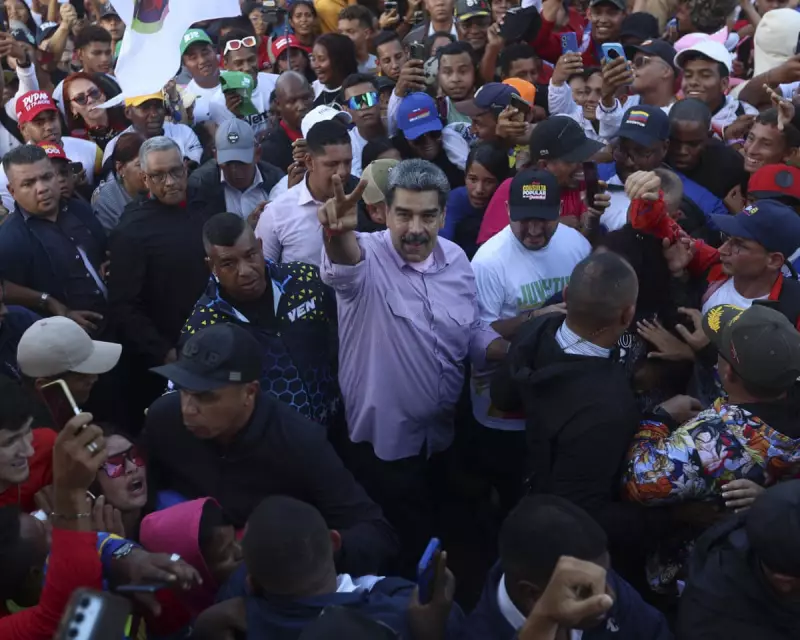
Venezuela's authoritarian president Nicolás Maduro has issued a stark warning to Donald Trump, urging the American leader to avoid plunging the United States into an Afghanistan-style 'forever war' as military tensions escalate in the Caribbean region.
Military Buildup Intensifies
The situation dramatically escalated this week as the world's largest aircraft carrier, USS Gerald R Ford, arrived in the region, signalling a significant military presence near Venezuelan waters. The deployment represents the largest American military mobilisation in the area since the 1989 invasion of Panama.
Speaking to CNN outside the Miraflores presidential palace in Caracas, the 62-year-old Venezuelan leader made an emotional appeal for peace. "No more forever wars. No more unjust wars. No more Libya. No more Afghanistan. Long live peace," Maduro declared late on Thursday while navigating through crowds to reach a pro-government rally.
US Officials Ramp Up Rhetoric
Hours after Maduro's peace appeal, US Defence Secretary Pete Hegseth significantly increased pressure on Venezuela's government by announcing what he termed Operation Southern Spear. "The Western Hemisphere is America's neighbourhood – and we will protect it," Hegseth tweeted, describing the Southern Command mission as essential to defending "our homeland" from "the drugs that are killing our people".
The timing of Hegseth's announcement raised questions among observers, coming nearly ten months after US Naval Forces Southern Command initially declared the impending launch of the operation. The original plan outlined using "a heterogeneous mix of robotic and autonomous systems to support the detection and monitoring of illicit trafficking" throughout the Caribbean.
Political Motivations Suspected
While the Trump administration officially justifies the massive deployment as part of its ongoing "war on drugs" aimed at preventing Latin American drug cartels from "flooding" the United States with cocaine and fentanyl, analysts note significant discrepancies in this narrative.
Venezuela is not a cocaine producer – production occurs almost entirely in Bolivia, Colombia and Peru – nor does it participate in fentanyl smuggling networks, which primarily operate through Mexico. This has led many regional experts to conclude that Trump's military mobilisation represents a political crusade designed to achieve what the president failed to accomplish during his first term: overthrowing Maduro's government.
CBS News reported this week that senior military officials had presented Trump with "options for potential operations in Venezuela, including strikes on land", though two sources emphasised that no final decision had been reached.
Venezuela Prepares Response
Venezuela's foreign minister, Yván Gil, delivered a defiant message to what he called "the North American empire", stating unequivocally: "Don't you dare [attack]. We are ready."
As speculation grows about potential aerial attacks on Venezuelan territory, Reuters revealed that Maduro's regime has developed comprehensive plans for "a guerrilla-style response" to any American assault. These strategies reportedly involve small military units positioned at more than 280 locations executing acts of sabotage and guerrilla tactics to repel foreign forces.
Under a secondary approach described as "anarchisation", pro-regime groups including intelligence services would create widespread chaos in the streets of Caracas, making Venezuela "ungovernable for foreign forces", according to two sources familiar with the plans.
The escalating situation represents one of the most significant geopolitical confrontations in the Western Hemisphere in recent decades, with potential implications for regional stability and international relations.





